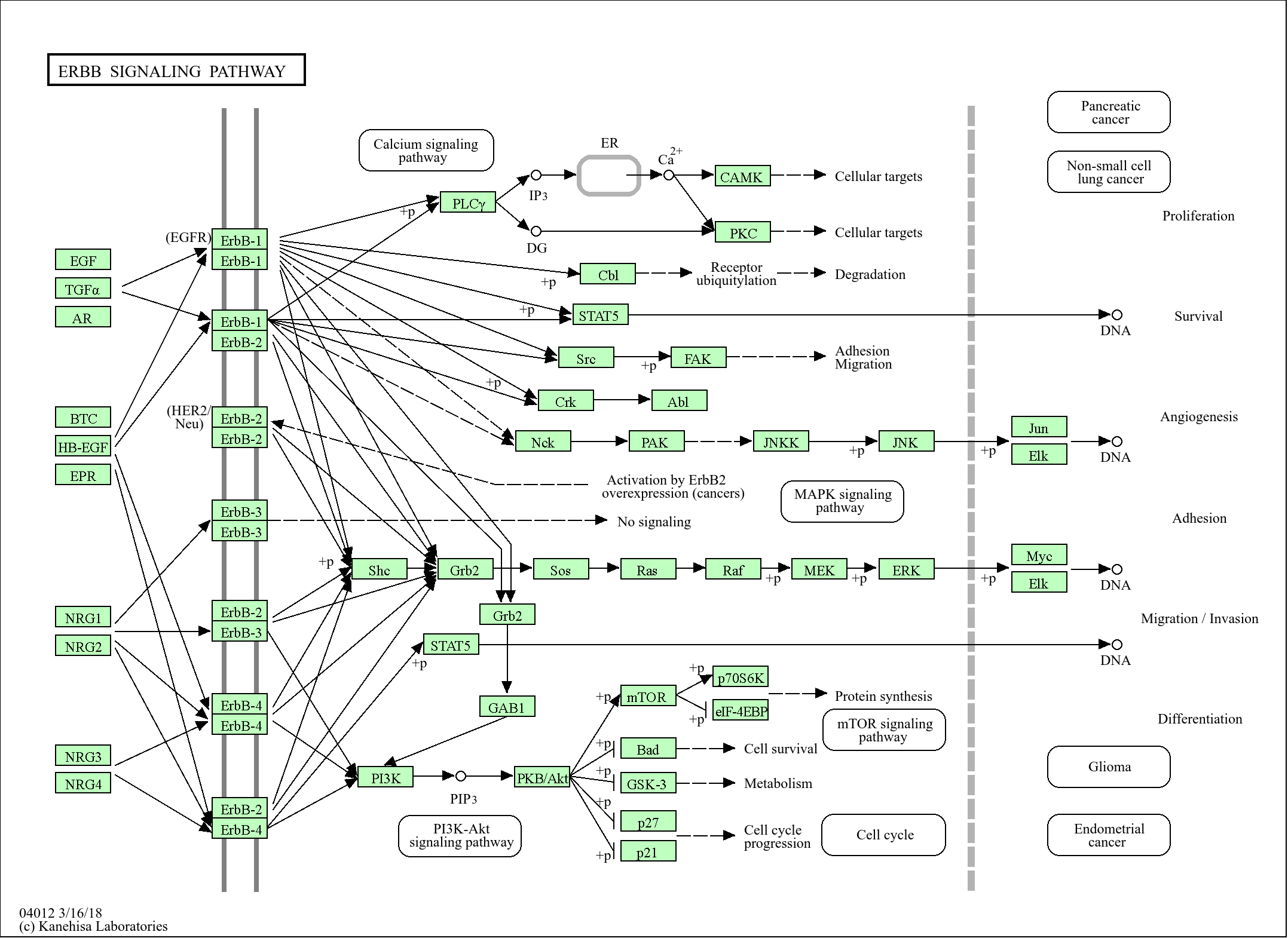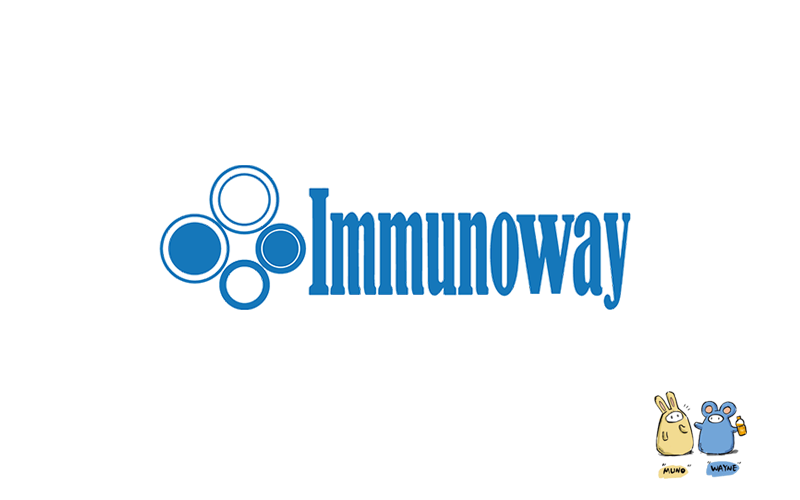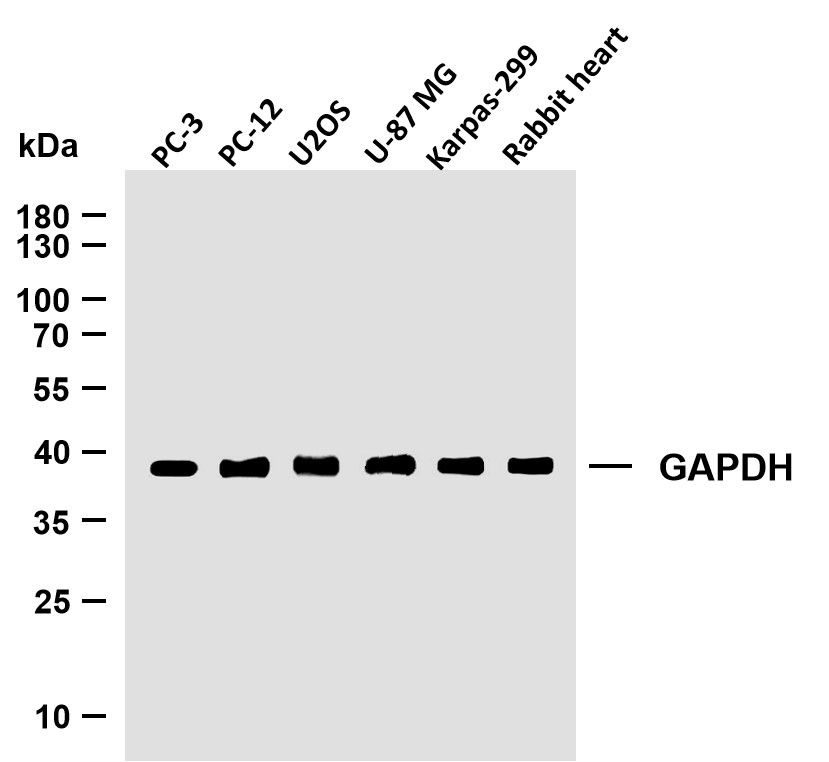
Catalog: YT0832
Size
Price
Status
Qty.
200μL
$450.00
In stock
0
100μL
$280.00
In stock
0
40μL
$150.00
In stock
0
Add to cart


Collected


Collect
Main Information
Target
Cdk2/Cdc2
Host Species
Rabbit
Reactivity
Human, Mouse, Rat
Applications
WB, IHC, IF, ELISA
MW
32kD (Observed)
Conjugate/Modification
Unmodified
Detailed Information
Recommended Dilution Ratio
WB 1:500-1:2000; IHC 1:100-1:300; IF 1:200-1:1000; ELISA 1:20000; Not yet tested in other applications.
Formulation
Liquid in PBS containing 50% glycerol, 0.5% BSA and 0.02% sodium azide.
Specificity
Cdk2 Polyclonal Antibody detects endogenous levels of Cdk2 protein.
Purification
The antibody was affinity-purified from rabbit antiserum by affinity-chromatography using epitope-specific immunogen.
Storage
-15°C to -25°C/1 year(Do not lower than -25°C)
Concentration
1 mg/ml
MW(Observed)
32kD
Modification
Unmodified
Clonality
Polyclonal
Isotype
IgG
Related Products
Antigen&Target Information
Immunogen:
The antiserum was produced against synthesized peptide derived from human CDK2. AA range:231-280
show all
Specificity:
Cdk2 Polyclonal Antibody detects endogenous levels of Cdk2 protein.
show all
Gene Name:
CDK2
show all
Protein Name:
Cyclin-dependent kinase 2
show all
Other Name:
CDK2 ;
CDKN2 ;
Cyclin-dependent kinase 2 ;
Cell division protein kinase 2 ;
p33 protein kinase
CDKN2 ;
Cyclin-dependent kinase 2 ;
Cell division protein kinase 2 ;
p33 protein kinase
show all
Background:
cyclin dependent kinase 2(CDK2) Homo sapiens This gene encodes a member of a family of serine/threonine protein kinases that participate in cell cycle regulation. The encoded protein is the catalytic subunit of the cyclin-dependent protein kinase complex, which regulates progression through the cell cycle. Activity of this protein is especially critical during the G1 to S phase transition. This protein associates with and regulated by other subunits of the complex including cyclin A or E, CDK inhibitor p21Cip1 (CDKN1A), and p27Kip1 (CDKN1B). Alternative splicing results in multiple transcript variants. [provided by RefSeq, Mar 2014],
show all
Function:
Catalytic activity:ATP + a protein = ADP + a phosphoprotein.,enzyme regulation:Phosphorylation at Thr-14 or Tyr-15 inactivates the enzyme, while phosphorylation at Thr-160 activates it.,Function:Involved in the control of the cell cycle. Interacts with cyclins A, B1, B3, D, or E. Activity of CDK2 is maximal during S phase and G2.,similarity:Belongs to the protein kinase superfamily.,similarity:Belongs to the protein kinase superfamily. CMGC Ser/Thr protein kinase family. CDC2/CDKX subfamily.,similarity:Contains 1 protein kinase domain.,subunit:Found in a complex with CABLES1, CCNA1 and CCNE1. Interacts with CABLES1 (By similarity). Interacts with UHRF2. Part of a complex consisting of UHRF2, CDK2 and CCNE1. Interacts with the Speedy/Ringo proteins SPDYA and SPDYC. Found in a complex with both SPDYA and CDKN1B/KIP1.,
show all
Cellular Localization:
Cytoplasm, cytoskeleton, microtubule organizing center, centrosome. Nucleus, Cajal body. Cytoplasm. Endosome. Localized at the centrosomes in late G2 phase after separation of the centrosomes but before the start of prophase. Nuclear-cytoplasmic trafficking is mediated during the inhibition by 1,25-(OH)(2)D(3).
show all
Tissue Expression:
Epithelium,Lung,Placenta,
show all
Research Areas:
>>FoxO signaling pathway ;
>>Cell cycle ;
>>Oocyte meiosis ;
>>p53 signaling pathway ;
>>PI3K-Akt signaling pathway ;
>>Cellular senescence ;
>>Progesterone-mediated oocyte maturation ;
>>Cushing syndrome ;
>>Hepatitis C ;
>>Hepatitis B ;
>>Measles ;
>>Human papillomavirus infection ;
>>Human T-cell leukemia virus 1 infection ;
>>Epstein-Barr virus infection ;
>>Pathways in cancer ;
>>Viral carcinogenesis ;
>>Prostate cancer ;
>>Small cell lung cancer ;
>>Gastric cancer
>>Cell cycle ;
>>Oocyte meiosis ;
>>p53 signaling pathway ;
>>PI3K-Akt signaling pathway ;
>>Cellular senescence ;
>>Progesterone-mediated oocyte maturation ;
>>Cushing syndrome ;
>>Hepatitis C ;
>>Hepatitis B ;
>>Measles ;
>>Human papillomavirus infection ;
>>Human T-cell leukemia virus 1 infection ;
>>Epstein-Barr virus infection ;
>>Pathways in cancer ;
>>Viral carcinogenesis ;
>>Prostate cancer ;
>>Small cell lung cancer ;
>>Gastric cancer
show all
Signaling Pathway
Cellular Processes >> Cell growth and death >> Cell cycle
Cellular Processes >> Cell growth and death >> p53 signaling pathway
Cellular Processes >> Cell growth and death >> Cellular senescence
Human Diseases >> Cancer: overview >> Pathways in cancer
Human Diseases >> Cancer: specific types >> Gastric cancer
Human Diseases >> Cancer: specific types >> Prostate cancer
Human Diseases >> Cancer: specific types >> Small cell lung cancer
Environmental Information Processing >> Signal transduction >> FoxO signaling pathway
Environmental Information Processing >> Signal transduction >> PI3K-Akt signaling pathway
Reference Citation({{totalcount}})
Catalog: YT0832
Size
Price
Status
Qty.
200μL
$450.00
In stock
0
100μL
$280.00
In stock
0
40μL
$150.00
In stock
0
Add to cart


Collected


Collect
Recently Viewed Products
Clear allPRODUCTS
CUSTOMIZED
ABOUT US
Toggle night Mode
{{pinfoXq.title || ''}}
Catalog: {{pinfoXq.catalog || ''}}
Filter:
All
{{item.name}}
{{pinfo.title}}
-{{pinfo.catalog}}
Main Information
Target
{{pinfo.target}}
Reactivity
{{pinfo.react}}
Applications
{{pinfo.applicat}}
Conjugate/Modification
{{pinfo.coupling}}/{{pinfo.modific}}
MW (kDa)
{{pinfo.mwcalc}}
Host Species
{{pinfo.hostspec}}
Isotype
{{pinfo.isotype}}
Product {{index}}/{{pcount}}
Prev
Next
{{pvTitle}}
Scroll wheel zooms the picture
{{pvDescr}}



















